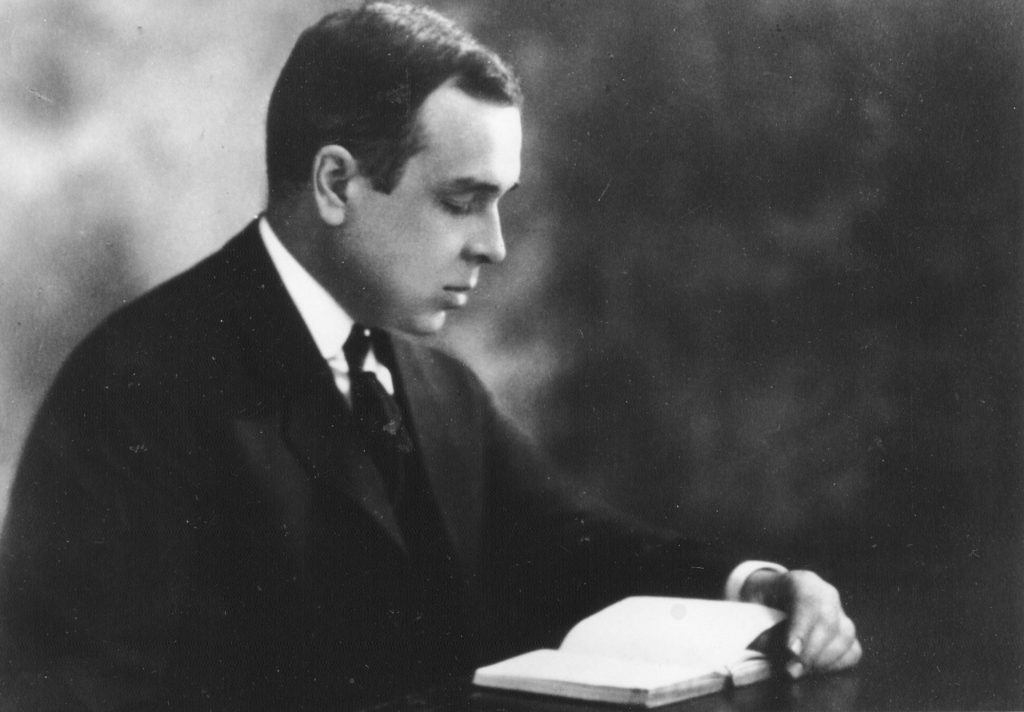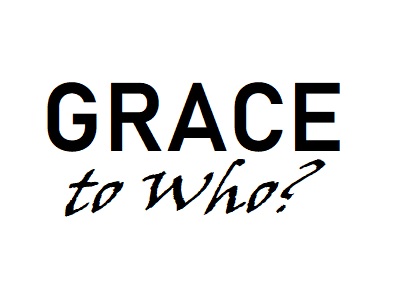
The gospel is bigger than a one-time message about the forgiveness for sins. It has to be. When the gospel only includes the atoning element, the forgiveness of sins, and when a one-time “born-again” conversion experience is so elevated it swallows up everything else, then you’ve got a truncated gospel.
Now, I’m not talking about Christians needing to be re-justified, or maintaining-justification, and I do think that people who believe that Jesus died for their sins, placing hope in the sufficiency of that, that’s a justifying faith. However, I think if that is as good as the good news is to someone, it’s a recipe for them being a baby Christian. Particularly in the affluent and seductive world we live in.
There is of course a tendency in the Reformed world in America, particularly to those who only know the Westminster Confession of Faith, (or some teacher influenced by it) to build only two main mental categories. Categories built on the theological categories of Justification and Sanctification. It goes something like this: “Justification is attained when I believed, and before that I was a baddie, and now I’m involved in Sanctification and for the most part done with being a baddie.”
This is a super-simplified take on the fact that justification is a one-time event, and since we’ve been removed from the law as a covenant-of-works, it becomes to us a guide to a God-glorifying life. The fact that even the power of sin in our lives is like a snake that has had its head cut off, and we have all the power in Christ to overcome whatever temptation we face each day. Even though, because of the transforming work of the Holy Spirit in us, we have been much improved, have different desires and have changed many habits. Yet by that same Spirit, we see (or we should see), how far off we are from the perfect standard, which is Jesus Christ, the one truly obedient Israelite, the promised seed of Adam and of Abraham who loved God and neighbor perfectly, fulfilling all righteousness under the law.
Somewhere in that we should see that we are no where near what God requires. Yet it seems that most American Christians think that a personal renovation from the state of being in gross-sin and having no desire for the things of God, to less-sin along with a sometime desire for the things of God means they’re somehow far above the same level of reproach as the great unwashed masses, the real sinners out there, or perhaps that guy in the church who doesn’t seem to visibly obey King Jesus as well as I do.
This simplified view often turns into a simple message, particularly among the more broadly evangelical camp of “Take-Jesus-as-Savior-and-then-you’d-better-work-on-making-Him-Lord-or-else-you’re-goin’-to-hell.” Trying to teach these people that works only follow justification as a consequence of prior regenerating union with Christ doesn’t often go very far, and they might peg anyone who does so as a liberal who is unwilling to say with un-minced words that Jesus better be King of your life or else. The Reformed Presbyterian version of this is: “But Sanctification is important too” …reminding them that “I didn’t’ say it wasn’t” is going to be the next step to probably getting nowhere.
It seems these people have setup this dichotomy where either one or the other is elevated and that when you elevate one, you’d better balance it out, because the two main categories governing their thought are that one is either a legalist or an antinomian. Too much law, and you’re a legalist, and too much gospel and you’re an antinomian.
Again, this is an over-simplification that is not helpful, because the gospel believed is what was able to make people who were formerly very moral Jews and or grossly sinful pagans do some pretty amazing things. They were now willing to not only accept persecution, rejection from society and imprisonment, but they also bore the antithetical fruit of actually rejoicing when all their worldly possessions and property were taken away from them.
“For you had compassion on those in prison, and you joyfully accepted the plundering of your property” (Heb 10:34a)
Now I’m a Texan who’s been on this earth for over 50 years and I don’t personally know anyone who would do that. It’s really shocking behavior. In fact, I will be honest about myself, I would have a serious problem if someone came and told me that all my stuff is being taken away because I am Christian.
My first thought is: “from my cold dead fingers.” Yet there that verse sits, right there in the bible. Who were these people, and why were they so over the top crazy rejoicing while their stuff being take away? This must be some sort of socialist plot to take more of my money.
Speaking of socialist plots… The first time I was shown that verse was by a well-off church Administrator/elder who was on the wealthy church’s payroll (partly with my money), and who himself had just come back from a vacation in Europe, a place I had never been.
This was the first years of the Obama administration, and I had not realized how many people in the allegedly conservative church I was in had voted for him. This elder was my elder and I was complaining about barely being able to make it financially, and about how a corrupt Federal law had made it impossible for our family owned mortgage brokerage to continue to compete with the larger companies and we had to close it down, and how bad off we were, and how much we were struggling. Based on me taking all that to him he hit me with that verse and suggested my wife (who had been the educated and certified primary operator of that family business) get a job.
Since then I have given a little thought to it now and again, and over time I realized that the answer was in the second half of the verse itself. “since you knew that you yourselves had a better possession and an abiding one.” (Heb 10:34b) . I present it to you in this little essay not because I’m an out of touch self-important socialist trying to get my hands on your stuff, (which yes, they most probably are), but to ask you a question. Do you think those crazy Christians only heard (and believed) a good report of Justification in Christ and then move on into sermons emphasizing Sanctification and personal holiness in their lives lived? Did that kind of sermon inspire such joy at having their earthly possessions plundered?
The fact is that Christ, by His obedience secured not only the promised eternal life in the first covenant with Adam, but we find out even more about the future secured by the obedient seed where there is an eternal and imperishable inheritance promised to Abraham and His seed (Christ) and to us who are seeds in Christ (Gal 3:26-28).
This is also not the only place we see Christians rejoicing, not over thoughts relating simply to being born again, with sins forgiven, but further into eternal things we Justified have attained in Christ: 1 Pet 1:3 Blessed be the God and Father of our Lord Jesus Christ! According to his great mercy, he has caused us to be born again to a living hope through the resurrection of Jesus Christ from the dead, 4 to an inheritance that is imperishable, undefiled, and unfading, kept in heaven for you, 5 who by God’s power are being guarded through faith for a salvation ready to be revealed in the last time. 6 In this you rejoice…
In Ephesians 1:3-14, Paul paints a much bigger picture of what God has done for us in Christ, all based on Christ’s work, starting from electing us in eternity past all the way to our guaranteed eternal inheritance, with the mere mention or thought of all of this wonderful news eliciting praise of God by Paul as he goes through it all, he writes of praise to God over and over again.
“Blessed be the God and Father of our Lord Jesus Christ, who has blessed us in Christ with every spiritual blessing in the heavenly places, even as he chose us in him before the foundation of the world, that we should be holy and blameless before him. In love he predestined us for adoption to himself as sons through Jesus Christ, according to the purpose of his will, to the praise of his glorious grace, with which he has blessed us in the Beloved. In him we have redemption through his blood, the forgiveness of our trespasses, according to the riches of his grace, which he lavished upon us, in all wisdom and insight making known to us the mystery of his will, according to his purpose, which he set forth in Christ as a plan for the fullness of time, to unite all things in him, things in heaven and things on earth.
In him we have obtained an inheritance, having been predestined according to the purpose of him who works all things according to the counsel of his will, so that we who were the first to hope in Christ might be to the praise of his glory. In him you also, when you heard the word of truth, the gospel of your salvation, and believed in him, were sealed with the promised Holy Spirit, who is the guarantee of our inheritance until we acquire possession of it, to the praise of his glory.”
This is all part of the good news is it not?
The Gospel is for Christians, because the gospel includes the description and reality of what is promised and secured for all who rest their faith on Christ alone. Only with the centrality of that hope regularly proclaimed and therefore pressed into the heart of every structure of the believer’s worldview would we expect to see a Christian like the Hebrews 10:34 Christians were.
Speaking of the ultimate hope is about the eternal life and eternal inheritance. Jesus teaches us not lay up treasures here on earth, but in heaven (Mat 6:19-20), and Paul even tells us where to set our minds, on the things above, where Christ is (Col 3:1). This is not an abstract call to mindless piety, but there is a specific hope He is calling us to, because that is where Christ is, and that is where our life is hidden and where our future secured hope is.
This sort of expanded view of the gospel helps make more sense of those crazy Christians in Hebrews 10:34.
The gospel for them had to have been expanded beyond a singular justifying event and message of atonement to a larger understanding of what all Christ secures and where our true hope lies. They had a bigger picture of things preached to them, and so to have a biblical understanding of the message of the gospel we must say that the good news therefore cannot be collapsed down to simply a pre-conversion message for unbelievers, but is at the heart of the Christian life. It’s the great hope of our very existence in a world where we all eventually grow old and die. It’s not so much about a balancing act, but an all-consuming belief about the ultimate nature of reality that very naturally bears the fruit of holiness as a consequence.
Holiness of a life set apart by God. With what is important to speak about, to think about, to meditate on, and to do, being ever more controlled and governed by the doctrinal foundation of the Christian theology concerning the promises of God to those who rest their faith upon Christ alone.
The Gospel is for Christians, because the gospel includes the description and reality of what is promised and secured for all who rest their faith on Christ alone. Only with the centrality of that hope regularly proclaimed and therefore pressed into the heart every structure of the believer’s worldview would we expect to see a Christian like the Hebrews 10:34 Christians were.
This is of course the whole reason that God instituted the church and called ministers into them. That we are not only matured, but as Peter teaches, it is part of the ordinary means of God’s guarding us to the inheritance: “… to an inheritance that is imperishable, undefiled, and unfading, kept in heaven for you, who by God’s power are being guarded through faith for…salvation.” (1Pet 1:3-5) It is through faith we are guarded by the power of God. This faith is in the gospel, of what we have in and through faith in Christ. This is why the gospel is for Christians, and why a church that clearly teaches and proclaims the whole gospel is a necessity.
Is it also why the Westminster Confession of Faith states that “there is no ordinary possibility of salvation outside the visible Church” (WCF 25:2) Its why excommunication is serious business, and why a clear and consistent grounding in the whole gospel is not only the highest honor a pastor is given, but is his most solemn responsibility to protect it. A pastor protects the gospel by proclaiming it. You help guard the Christian by proclaiming the gospel to them. This is the one chief duty of the shepherd over the flock, with the normative law proclamations always included as a guide for a life of gratitude, needing to be pressed in more or less for how grossly pagan, or perhaps unloving and needing of instruction in godliness the converts are. It is my observation that most Christians in a moral culture need less repetitive guidance in that regard and gladly seek to obey the moral law as a guide to a life of gratitude.
I would even say that in a culture where moral imperatives are valued, an important measure is not how much a Christian claims to love the law of God, but do they have an appetite for and hope in the gospel? You can fill large churches with “Promise Keeper” Christians, and “City Builder” Christians just aching to do something, but what is their ultimate hope? Would they rejoice at their stuff being taken away from them because they are Christians? Perhaps some would, but what about being looked upon as the scum of the earth, as evil and ridiculed as a fool added to that?
If someone would rejoice in that, in my mind right now, I’d have to say they are a much better Christian than me. I like my stuff, and I don’t want to be ridiculed and oppressed, to those who do, I say “you first.” It’s not as if my pastor hasn’t done a good job of grounding us in the eternal inheritance that is ours. I would say that he is the best pastor in my city who has consistently taught and emphasized the centrality of the gospel better that most anyone I’ve ever heard. But ultimately, I’m still struggling with my comfortable life and my blessings here. I hope to have a long life with my wife, and see even great grandchildren that belong to the Lord.
But I also hope and am struggling to let go. I want to be able to let go of everything, especially as I get closer to glory. I want to do that, I want to rejoice at my eternal inherence as everything is slowly taken away from me in regards to my health, and abilities.
So, from that perspective, if we do that, we really are like those crazy Hebrews 10:34 Christians. For them it was sped-up into a quicker set of events, but ultimately, we do have all our possessions taken away. Do any of us really want to be on a death bed clinging to our land, our house, our retirement account? Surely a Christian would not do that, so why live our lives as if those things are our hope now?
It’s because we’re immature. It’s because we’re still baby Christians.
Sunday is a day of rest for Christians. It’s a sign of our eternal rest. It’s like a foretaste of the eternal rest, like a little piece of heaven we rest in once per week, secured by the labors of Christ on our behalf. It is therefore not at the end of the week as a covenant of works sign, but moved to be beginning of the week, given to us with the required consummation meriting obedience already fulfilled by Christ for us. What a beautiful day each Sunday is for the believer.
Like Paul, we hear the good news of all the spiritual blessings we have in Christ and we praise God. Like Peter said we who are born again to a living hope are guarded through faith to our imperishable inheritance. When hear about and we believe what we have in Christ and what Sunday is when we will start to see that it’s not really a day to skip Church for Cowboys football games, or skiing at the lake. That is for the babies, the this-world clingers who sadly are given only the milk of truncated gospel proclamations, and large doses of watered-down moral imperatives to balance it out (as if they could). As the writer of Hebrews 6:1 says however “let us leave the elementary teaching about the Christ and press on to maturity not laying again a foundation of repentance from dead works and of faith” A more mature faith starts with a more robust and complete gospel pressed in. Regularly pressed in to the heart by the Holy Spirit so that when the crazy-let-go time comes (Heb 10:34) and it will come, we can let go and rejoice. Lord help us to love the good news, which includes our eternal inheritance secured by the obedience of Christ on our behalf.










